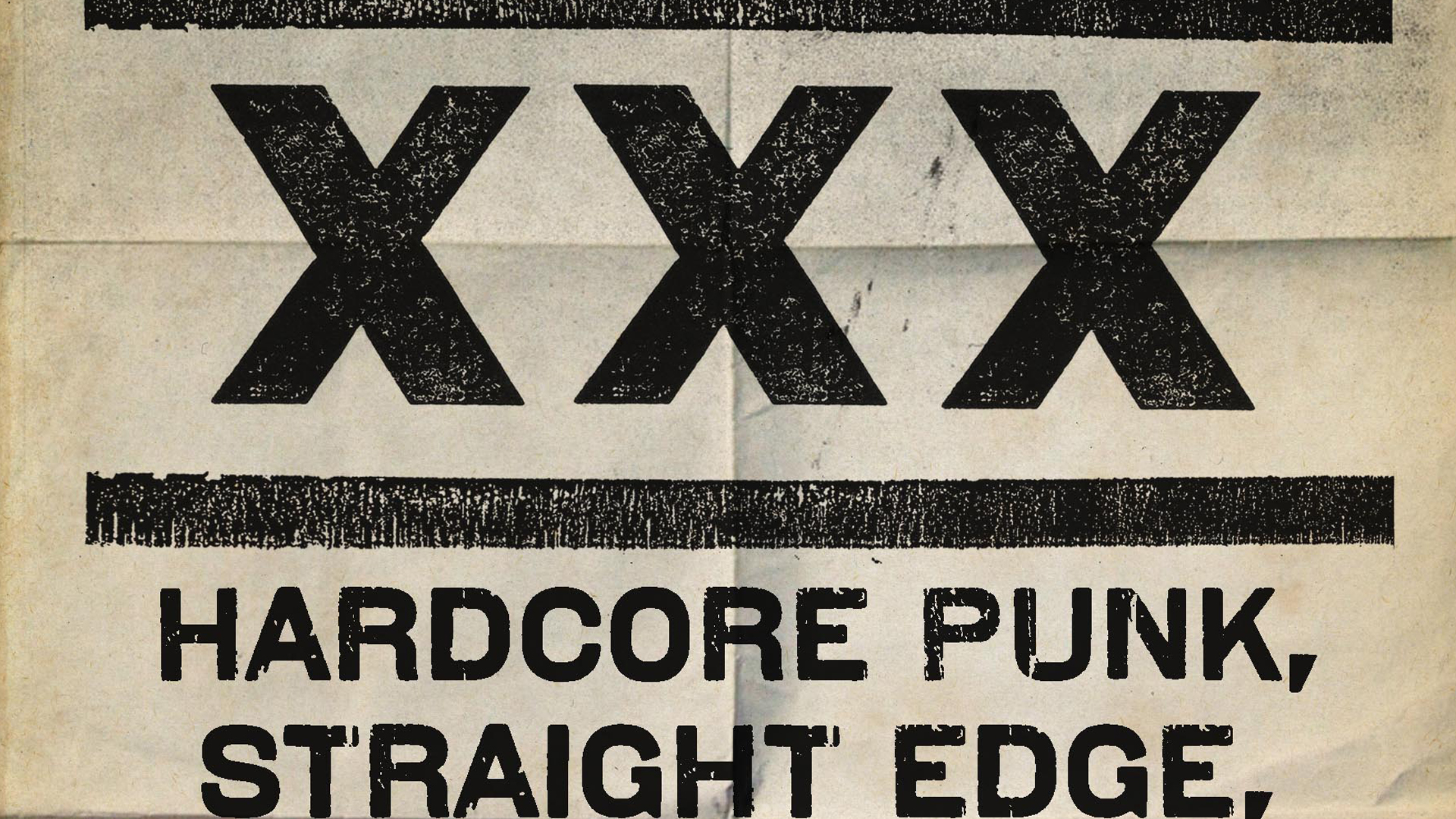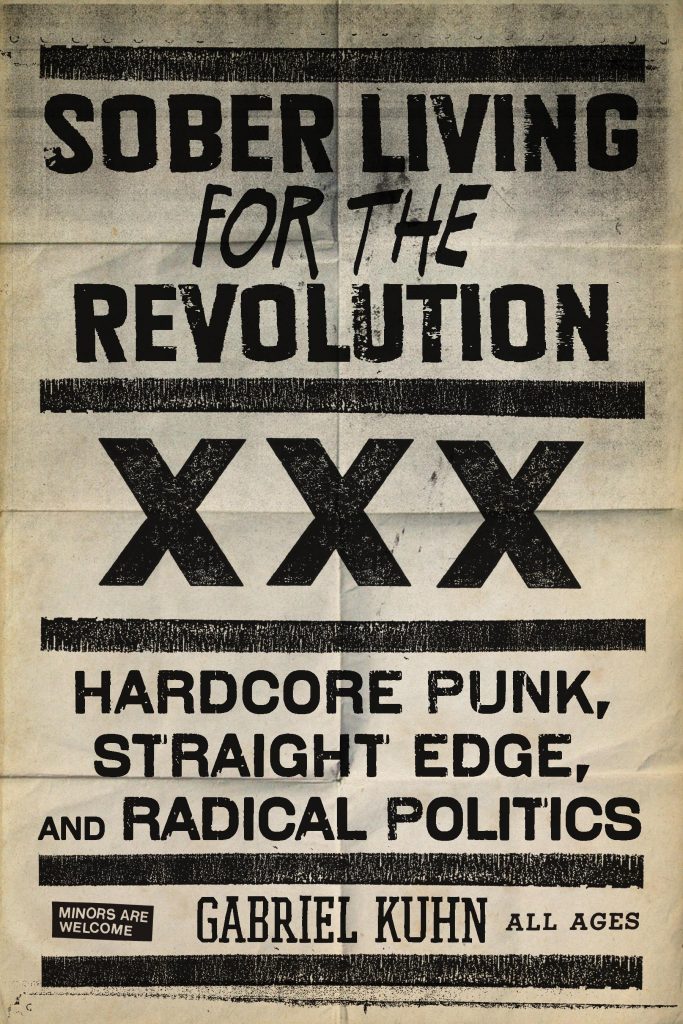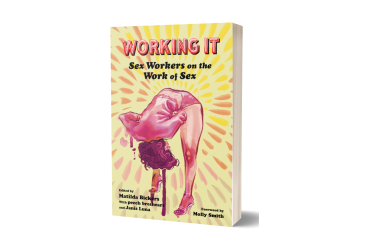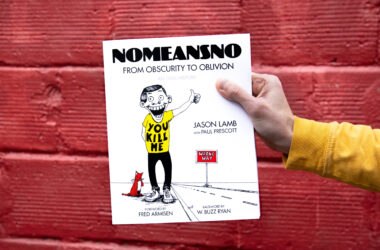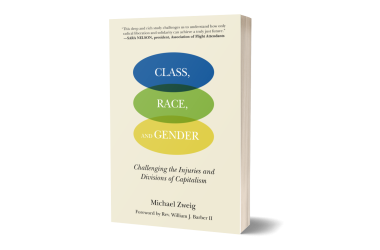Reno was one of the influential cities behind the rise of the worldwide philosophy called “straight edge” that arose out of the punk rock music scene. I had an email conversation about this and more with Gabriel Kuhn, currently based in Sweden, about his new book, “Sober Living for the Revolution: Hardcore Punk, Straight Edge and Radical Politics.”
Mark Robison: For a readership that likely has never heard of straight edge or has heard of it only in relation to gang activity in Reno, what is the philosophy of straight edge?
Gabriel Kuhn: The history of straight edge spans 30 years by now, and a number of interpretations have developed. On its most basic level, straight edge means to abstain from alcohol, nicotine, and illegal drugs. However, there is a variety of “stricter” definitions. To some, it means to abstain from all intoxicants, so – depending on your understanding of “intoxicants” – this would include abstinence from caffeine, certain prescription drugs, possibly refined sugar, and so forth. Some straight edgers also see non-promiscuous sex as a part of their straight edge identity, while others simply call for “responsible” sexual conduct or don’t consider sexual conduct a central aspect at all. Especially since the 1990s, straight edge has also been inextricably linked to veganism by a number of people.
I would also make a distinction in terms of motivation. For some people, straight edge has always been a very personal choice: it helps them to lead a healthier and more independent life. We might call this a more “individualistic” approach. For others, straight edge has always been linked to the way they interact with the world: it helps them to avoid exploiting other creatures and ecosystems and to remain accountable for the consequences of their actions. We might call this a more “political” approach.
To make one final distinction, within the “political” approach, there is a fairly wide range of stances reaching from modest attempts to set an example to rather aggressive and self-righteous bullying.
Mark Robison: In the timeline of straight edge history at the start of your book, Reno gets three mentions, one of the most of any city in the world. But it’s not discussed in the heart of the book. Do you have any thoughts on Reno’s straight edge scene now or historically?
Gabriel Kuhn: Writing from an international perspective, I think that people have two main associations when it comes to Reno and straight edge: they know 7 Seconds as one of the most important and influential straight edge bands of all time; and, in recent years, they have heard about the accusations of straight edge crews acting as “gangs.” Both aspects seemed noteworthy in the introduction, but since the book neither focuses on the Youth Crew era that 7 Seconds pioneered (roughly, the first big wave of straight edge in the U.S. in the 1980s) nor on the sensationalist gang issues, neither was explored in more depth. However, this has little to do with Reno. The book has a decidedly internationalist outlook, and no single U.S. city receives particular attention.
I have to be very careful when commenting on the Reno straight edge scene because I’m not very familiar with it. I’ve visited Reno a couple of times, but it was always very brief, and I do not have well-established connections there. I would say that the scene that developed around 7 Seconds has left a very positive impression on many people, including me. Today, it is sometimes forgotten that Positive Force DC, the long-running and much respected activist community, was inspired by a Positive Force group founded in Reno in 1984 – the first one ever.
As
far as the contemporary scene goes, as I suggested, I know very little
about its development. However, since I know a fair amount about the
workings of corporate media, I’m not letting some dramatic reports on
violence-prone straight edge “gangs” cloud my perception. From all I do
know, Reno has a straight edge scene that covers the whole range of
straight edge identities described above. It is not surprising if media
outlets focus on confrontational individuals, but how representative
they are for the wider straight edge community is a whole other
question. You always find belligerent straight edge kids next to mellow
ones, I assume that’s no different in Reno than anywhere else.
Mark
Robison: In the National Geographic Channel special from 2008 that
highlighted Reno’s straight edge scene, some parents were worried when
learning their kids had gotten into straight edge while others were
very supportive because of the anti-drug, anti-alcohol and anti-casual,
conquest-oriented sex philosophy. If a parent came to you saying their
child was getting into straight edge, what advice would you have for
them?

Gabriel Kuhn: Very interesting question, since I have never really thought of myself as a parents’ counselor, but here we go: first of all, I would assure them that such a choice is generally comforting and not alarming. Whatever the exact definition, straight edge can keep kids from some of the most self-destructive paths they can embark on, and I assume this is something that any parent feels happy about. If people are really concerned about violent behavior or “gang” associations, I guess they could always talk to their kids about what straight edge means to them and about how compassion should guide their actions and not arrogance.
In any case, it is not straight edge that will get kids into trouble. A certain straight edge scene or crew might serve as a vehicle for kids to get into trouble, but my guess is that they’d get into trouble anyway. People who beat up on others in the name of straight edge would beat up on others in the name of whatever. Venting frustration or living up to patriarchal values is obviously more important to them than straight edge. In other words, straight edge might be used as an excuse for violence, but it will never be the cause of violence. To the contrary, I am convinced that a compassionate understanding of straight edge can be one of the most effective means to prevent such behavior.
Mark Robison: A relatively new Reno band named Contend is reportedly working on an EP for Catalyst Records. Where does Catalyst fit in with straight edge’s history?
Gabriel Kuhn: Especially if one is interested in the political dimensions of straight edge, Catalyst has had an enormous significance for straight edge history – particularly in the U.S., but also internationally.
As I briefly outlined above, the 1990s saw a strong politicization of straight edge, with animal rights and environmental concerns becoming ever more prominent. Roughly speaking, this went two ways: some people developed a strict moral code around these beliefs, sometimes tying them to ideas of “naturalness” and “innocence” that fed into very conservative politics, including homophobia and attacks on abortion rights; others focused on expanding the relationships between straight edge and political activism in more complex ways, spawning many encouraging and inspiring projects and initiatives.
Catalyst Records played a crucial role for the latter tendency, managed to build international connections and continues to provide an important platform for political straight edge. The label’s website offers one of the most insightful discussion forums for politically oriented straight edge to this day.
Mark Robison: How would you describe the sound of straight edge music to someone unfamiliar with it?
Gabriel Kuhn: Given the long history that straight edge has already gone through, it has also developed into various musical directions. I do not want to bore readers with all the different subgenres that have emerged, but today, the musical range of straight edge reaches from grindcore to acoustic acts.
Traditionally, though, we are talking about fast, forceful, short and rather simple songs. A friend always tried to get me play the guitar by promising that he could teach me all my favorite straight edge songs in a couple of hours. I’m sure he was exaggerating – especially considering my lack of talent – but this might still give you an impression.
Things really changed in the 1990s, though, and a broad variety of straight edge music got established, sometimes with very complex and intricate song structures. However, most of it still relates in some way to the legacy of punk and hardcore, despite all other influences.
Mark Robison: The aggressive sound seems to conflict with the thoughtful, kind voices captured in your book. How do you explain that?
Gabriel Kuhn: Maybe “seems” is the key word here. I don’t think there really is a conflict. The question relates to the history and meaning of punk and hardcore in general, and also to other “aggressive” music or art forms, in which you’ve always encountered kind people.
Aggressive music helps to vent anger. Being angry and being kind are no contradictions. They can be two sides of the same coin, the anger stemming from kindness being constantly upset and challenged in a world ruled by greed, competition, and a general disregard for the needs of others. Anger can of course trigger destructive behavior – both for yourself and others – but not if it is channeled in the right way. I believe that punk and hardcore, and hence straight edge, can help to turn anger into something positive: the music allows you to release a lot of negative feelings in socially acceptable, non-harmful ways, and you come out as a more composed, balanced and kinder person. In that sense, the meeting of aggressive sound and thoughtful, kind voices is no contradiction, but rather a very natural union.
Mark Robison: For me, the book was especially valuable for two things that could apply to any politically or morally motivated movement. It shows how easily a moral message can turn to aggressive bullying, and it shows how people can avoid the pitfalls of judging others and how they incorporate moral beliefs into a healthy, lifelong philosophy. What common denominators would you say helped those people who avoided having straight edge turn into a simple fad or even something negative and instead kept it a positive in their lives?
Gabriel Kuhn: One aspect I consider important might seem rather trivial, as it doesn’t have much to do with convictions or principles. In my experience, people who are straight edge for a long time, and who are hardly impacted by the fads, are people who never enjoyed doing drugs and never gave in to peer pressure either. In other words, they never developed the habit of consuming drugs of any kind, which makes these substances just naturally absent from their lives. There are, of course, also those who’ve had really bad experiences with drugs and managed to turn their lives around with the help of straight edge. In this case, too, I think it’s a deeply-rooted personal element that causes a strong and lasting commitment.
Most people who get into straight edge for a short time don’t necessarily feel all that close to the straight edge life itself, they might rather be looking for an identity, a “brotherhood,” something to derive individual worth and confidence from. Unsurprisingly, it is often these kids who become the loudest, the most obnoxious and the most judgmental. This is a common phenomenon when embracing something not because it corresponds with your inner needs, but because you are looking for an external label to affirm your supposed superiority over others. Of course there are also people who believe that their inner needs are categorically more important than those of others. I guess these are the ones who make lifelong straight edge ideologues. But I think they are few.
Anyway, to sum this up and to answer your question: I think people who keep straight edge something positive in their lives have a strong personal inclination to be straight edge, and are wise enough to see the difference between living a conscious life according to personal inclinations on the one hand, and elevating these inclinations to a moral high ground on the other. I strongly believe that straight edge can contribute to more justice and happiness in this world. Yet, to believe that it is the only or the most important way to make such a contribution seems absurd.
Mark Robison: Lots of bands from around the world are focused on or mentioned in passing throughout the book. What albums do you think people need to know if they are to be literate in straight edge music? And who’s putting out straight edge music today that you’re excited about?
Gabriel Kuhn: The first question is a big one. It kept me from adding a discography to the book, as the selection is inevitably so subjective. But alright, here are a few records I’d recommend: Minor Threat’s self-titled EP and the album “Out of Step” for the beginning of it all; records like 7 Second’s “The Crew,” Youth of Today’s “We’re Not in This Alone” and Bold’s “Speak Out” for straight edge in the 1980s; ManLiftingBanner’s “Ten Inches That Shook the World” for early European straight edge; Earth Crisis’ “Firestorm” EP, the Swedish “Straight Edge as F—” compilations, and “Imposed Freedom, Conquered Freedom” by Brazil’s Point of No Return for developments in the 1990s and early 2000s. I’d also really recommend compilations like Commitment Records’ “More Than the X on Our Hands – A Worldwide Straight Edge Compilation,” and Emancypunx’ “X The Sisterhood X”; these albums really provide an overview of the diversity and global spread of straight edge music.
As far as bands go that are playing and recording today, I’m really mainly worried about not mentioning all the ones that deserved to be mentioned, many of which I’m sure I’m not even aware of. I guess that I’ve personally become most curious about bands that break with straight edge stereotypes in whatever way, like Limp Wrist, Germany’s The Tangled Lines or Portugal’s Arm the Spirit. In the U.S., I thought 7 Generations and Gather were really interesting bands, but both of them broke up recently. Exciting new bands appear all the time, though. I’m also a big believer in supporting your local scene, so this is where I’d encourage everyone to start looking!
More about the book: “Sober Living for the Revolution” was published by PM Press in Northern California. You can learn more about PM Press here and you can read my review of the book here.

